
Fonoifua Island: Tonga's Hidden Gem
Fonoifua Island is a tranquil paradise located in the Ha'apai group of islands in Tonga. The island is known for its pristine beaches, crystal-clear waters, and vibrant marine life. It offers a perfect escape from the hustle and bustle of modern life, making it an ideal destination for those seeking peace and solitude. The island's untouched natural beauty is one of its main attractions. Visitors can enjoy snorkeling and diving in the surrounding coral reefs, which are home to a variety of tropical fish and other marine creatures. The warm, turquoise waters are also perfect for swimming and kayaking. Cultural experiences await as well. Fonoifua Island provides a glimpse into traditional Tongan life, with opportunities to interact with the friendly local community. You can learn about their customs, watch traditional dances, and even participate in a traditional feast known as an 'umu'. This authentic experience is a highlight for many visitors. For nature lovers, the island offers plenty of hiking trails that lead through lush vegetation and offer stunning views of the surrounding ocean. Bird watchers will also be delighted by the diverse bird species that inhabit the island. Whether you're looking to relax on the beach, explore underwater wonders, or immerse yourself in local culture, Fonoifua Island has something for everyone.
Local tips in Fonoifua Island
- Visit during the dry season (May to October) for the best weather conditions.
- Bring snorkeling gear to explore the vibrant coral reefs.
- Engage with the local community to learn about their customs and traditions.
- Pack lightweight, breathable clothing and plenty of sunscreen.
- Carry cash, as there are limited ATM facilities on the island.
Fonoifua Island: Tonga's Hidden Gem
Fonoifua Island is a tranquil paradise located in the Ha'apai group of islands in Tonga. The island is known for its pristine beaches, crystal-clear waters, and vibrant marine life. It offers a perfect escape from the hustle and bustle of modern life, making it an ideal destination for those seeking peace and solitude. The island's untouched natural beauty is one of its main attractions. Visitors can enjoy snorkeling and diving in the surrounding coral reefs, which are home to a variety of tropical fish and other marine creatures. The warm, turquoise waters are also perfect for swimming and kayaking. Cultural experiences await as well. Fonoifua Island provides a glimpse into traditional Tongan life, with opportunities to interact with the friendly local community. You can learn about their customs, watch traditional dances, and even participate in a traditional feast known as an 'umu'. This authentic experience is a highlight for many visitors. For nature lovers, the island offers plenty of hiking trails that lead through lush vegetation and offer stunning views of the surrounding ocean. Bird watchers will also be delighted by the diverse bird species that inhabit the island. Whether you're looking to relax on the beach, explore underwater wonders, or immerse yourself in local culture, Fonoifua Island has something for everyone.
When is the best time to go to Fonoifua Island?
Iconic landmarks you can’t miss
Mapu'a Vaea Blowholes
Discover the breathtaking Mapu'a Vaea Blowholes in Tonga, where nature showcases its beauty with stunning oceanic displays and idyllic surroundings.
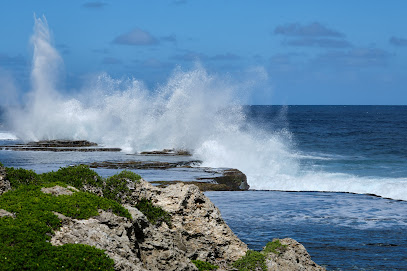
Tongatapu
Explore Tongatapu, Tonga's largest island, where stunning landscapes, rich culture, and warm hospitality create an unforgettable tropical adventure.
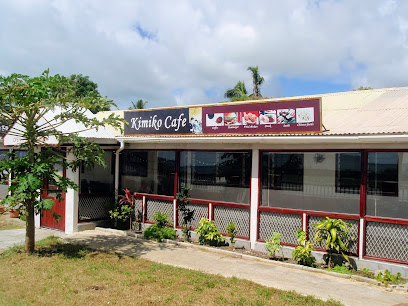
Royal Palace of Tonga
Explore the Royal Palace of Tonga, a stunning historical landmark that embodies Tongan heritage and royal traditions in Nuku'alofa.
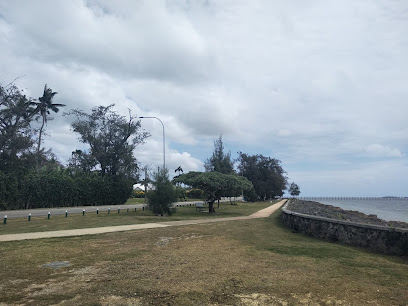
Anahulu Cave
Explore the mesmerizing Anahulu Cave in Haveluliku, Tonga, where stunning limestone formations and crystal-clear waters await your discovery.
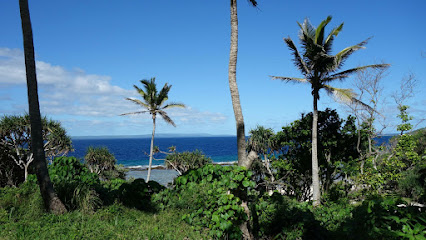
Royal Tombs
Explore the Royal Tombs in Nuku'alofa, Tonga, where history and heritage come alive through the resting places of ancient kings and queens.
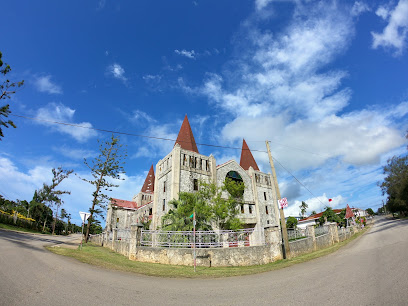
Tsunami Rock
Discover the enchanting Tsunami Rock, a stunning natural landmark in Tonga that blends breathtaking beauty with rich cultural history, a must-visit for every traveler.
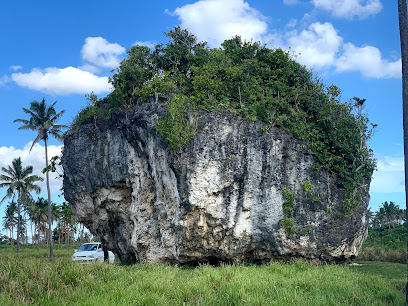
Ancient Tonga
Explore the rich heritage and culture of Tonga at Ancient Tonga, a captivating tourist attraction in Nuku'alofa showcasing traditional arts and crafts.
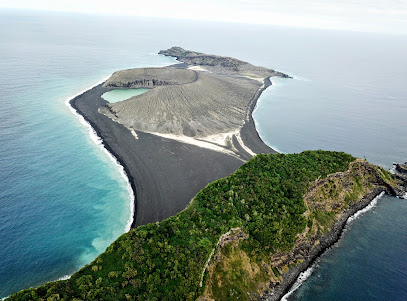
Ha'amonga 'a Maui Trilithon
Discover the ancient wonder of Ha'amonga 'a Maui Trilithon, a historical landmark that embodies Tonga's rich cultural heritage and architectural marvels.
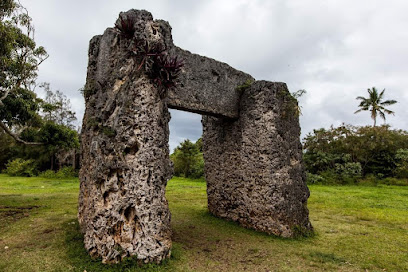
Ha'atafu Beach
Discover the tropical beauty of Ha'atafu Beach in Tonga, where soft sands meet crystal-clear waters and vibrant marine life awaits.
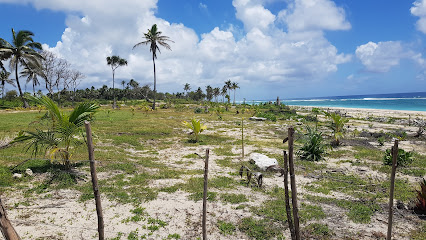
Captain Cook Landing Site
Discover the rich history and breathtaking scenery at Captain Cook Landing Site, a landmark celebrating Tonga's cultural heritage.
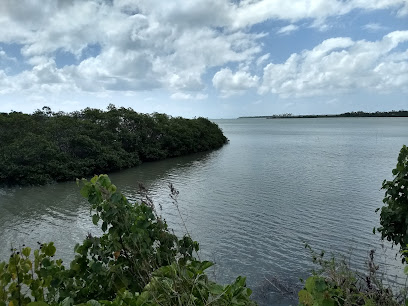
Paepae o Tele'a
Explore the rich history and breathtaking beauty of Paepae o Tele'a, a must-visit historical landmark in Mu'a, Tonga, for every traveler.
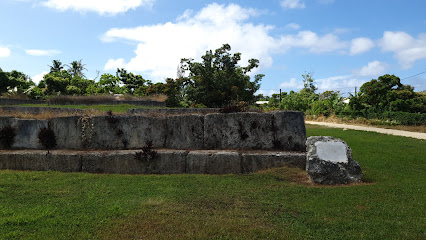
Tonga National Museum
Explore the cultural heart of Tonga at the National Museum in Nuku'alofa, showcasing rich history and heritage in a captivating setting.
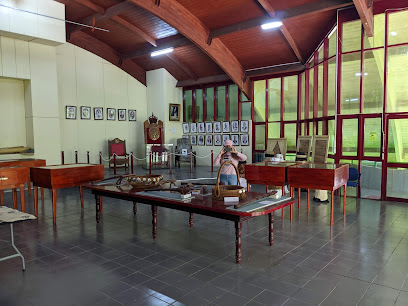
Maka Fa'akinanga
Explore Maka Fa'akinanga in Niutoua, a captivating historical landmark that reveals the rich tapestry of Tongan culture and heritage amidst stunning natural scenery.
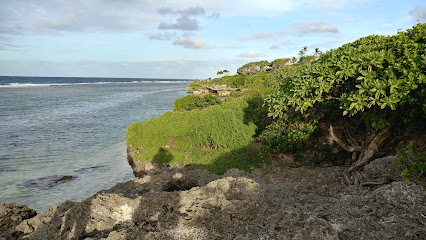
Ma'ufanga
Discover the rich cultural tapestry and spiritual essence of Ma'ufanga in Nuku'alofa, Tonga, where tradition and community spirit thrive.
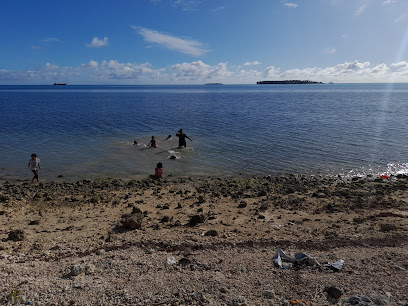
Mounu Island
Discover the untouched beauty of Mounu Island, Tonga, where serene beaches and vibrant marine life await your exploration.

Essential places to dine
Coffee Post
Discover Coffee Post in Maufanga, Nuku'alofa - your ultimate destination for exceptional coffee and delectable snacks in Tonga.
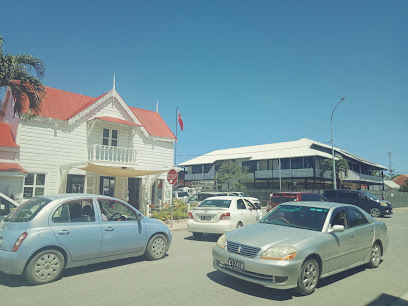
Little Italy Hotel
Experience authentic Italian cuisine and cozy accommodations at Little Italy Hotel in Nuku'alofa - A true taste of Italy in Tonga.

Friends Cafe
Discover the flavors of Tonga at Friends Cafe in Nuku'alofa - where delicious meals meet a welcoming atmosphere.
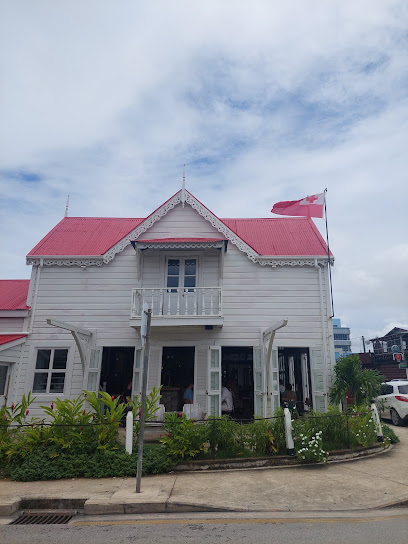
Cafe Escape
Discover the flavors of Tonga at Cafe Escape in Nuku'alofa – where every meal tells a story.
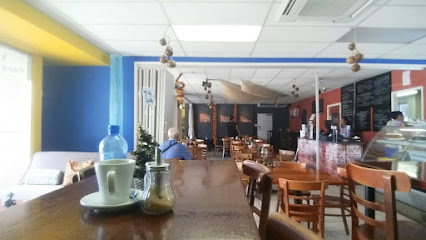
Billfish Bar and Restaurant
Discover authentic Tongan flavors at Billfish Bar and Restaurant in Nuku'alofa – where great food meets vibrant island culture.
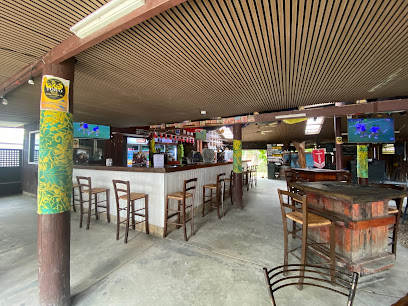
Chef Zero Restaurant
Experience authentic Tongan cuisine at Chef Zero Restaurant in Nuku'alofa—where every dish tells a story.
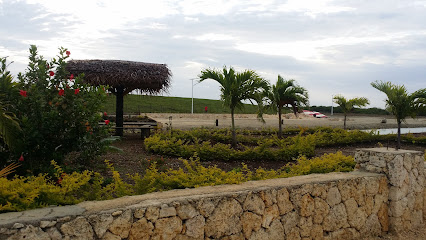
Waterfront Lodge
Discover Tongan hospitality at Waterfront Lodge – your serene getaway in Nuku'alofa with stunning ocean views and authentic local cuisine.

The TOP Restaurant and Lounge
Experience the vibrant flavors of Tonga at The TOP Restaurant and Lounge in Nuku'alofa—where culinary excellence meets breathtaking views.
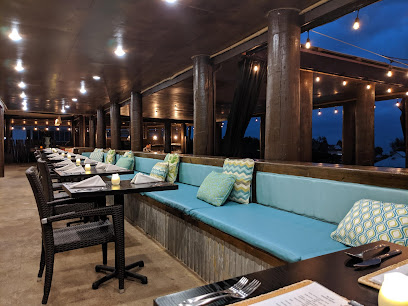
Mum's Cafe Nukualofa
Discover the authentic tastes of Tonga at Mum's Cafe Nukualofa - your gateway to delicious local cuisine.
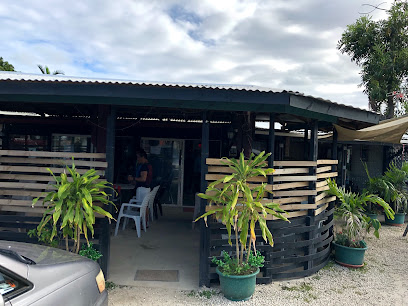
Tupu'anga Coffee Factory and Cafe
Experience the rich flavors of Tonga at Tupu'anga Coffee Factory and Cafe – where every cup tells a story.
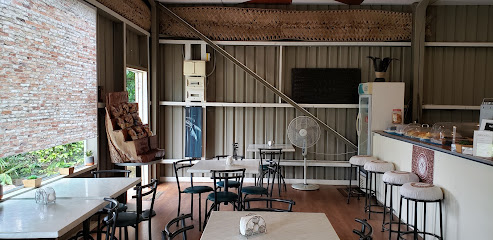
Ngutulei Bar & Restaurant
Experience authentic Tongan cuisine at Ngutulei Bar & Restaurant in Nuku'alofa, where vibrant flavors meet warm hospitality.
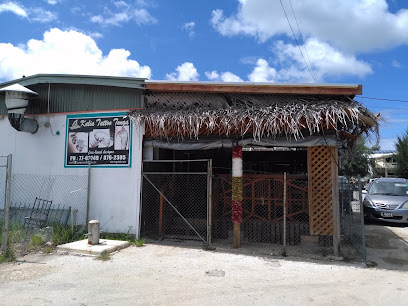
Young’s Kitchen
Experience the essence of Tonga through delectable traditional dishes at Young’s Kitchen in Nuku'alofa.
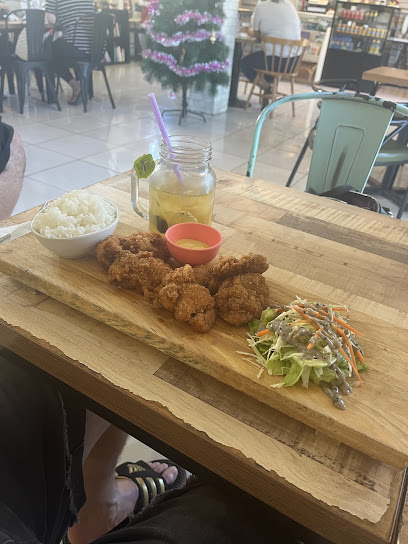
The Waterfront Cafe
Discover authentic Tongan flavors at The Waterfront Cafe in Nuku'alofa - where delicious food meets breathtaking ocean views.
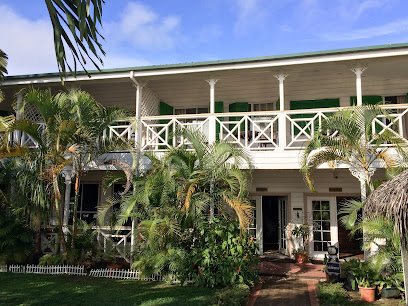
Frangipani - Korean Restaurant/Karaoke
Experience authentic Korean cuisine and lively karaoke at Frangipani in Nuku'alofa – a delightful blend of flavor and fun.
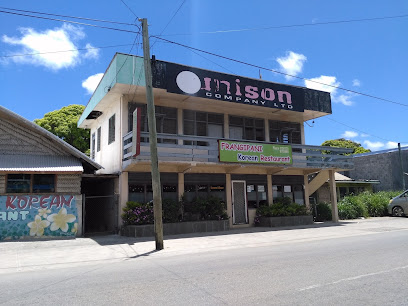
Sabrina's Chicken Vilovilo
Experience the authentic taste of Tonga at Sabrina's Chicken Vilovilo, where every bite is a celebration of local flavors and barbecue mastery.
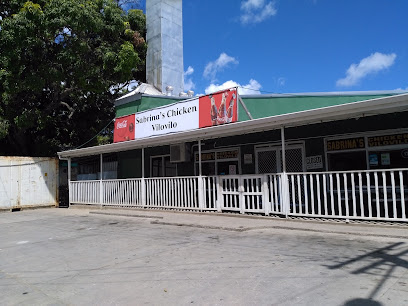
Markets, malls and hidden boutiques
Talamahu Market
Discover the vibrant Talamahu Market in Nuku'alofa, Tonga - a cultural hub filled with fresh produce, local crafts, and culinary delights.
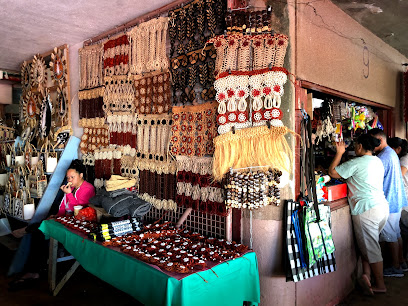
Molisi Supermarket
Experience the essence of Tonga at Molisi Supermarket, where local flavors and vibrant culture come together in Nuku'alofa.
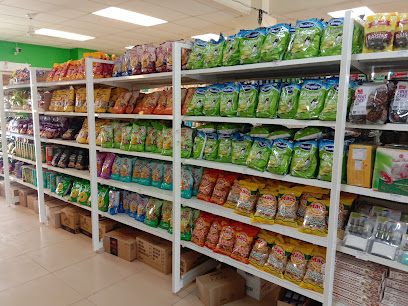
Hiki 'O Tonga
Explore Hiki 'O Tonga in Nuku'alofa – a shopping haven combining local crafts, modern retail, and Tongan culture in a vibrant atmosphere.
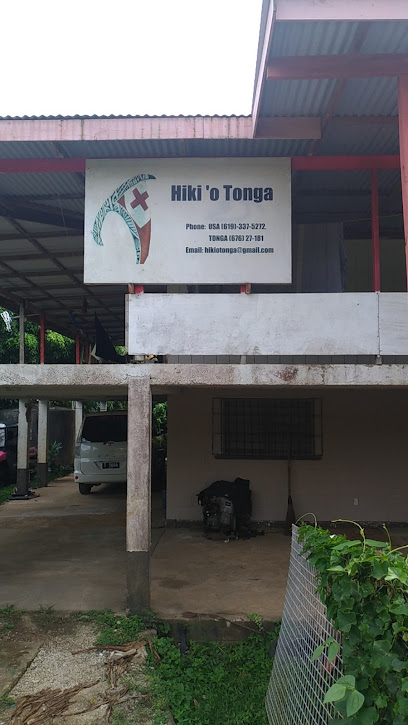
EZ TONGA ONLINE SHOPPING
Discover the essence of Tonga through EZ Tonga Online Shopping, where local products meet modern convenience in Nuku'alofa.

Langafonua Handicraft Centre and Gallery
Explore Tongan culture through exquisite crafts at Langafonua Handicraft Centre, a vibrant gallery and craft store in Nuku'alofa.
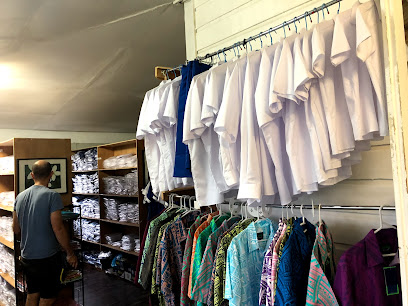
‘Otu Felenite Tattoo & Barbershop
Discover the vibrant artistry of Tongan culture at ‘Otu Felenite Tattoo & Barbershop in Nuku'alofa, where tradition meets modern tattooing.
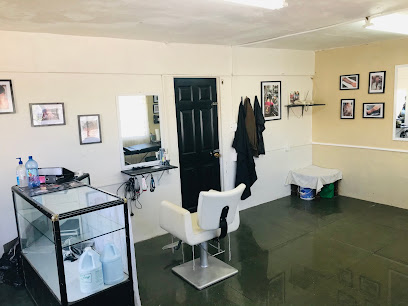
Friendly Island Bookshop
Discover the soul of Tonga through literature at Friendly Island Bookshop, where every book tells a story of the islands.
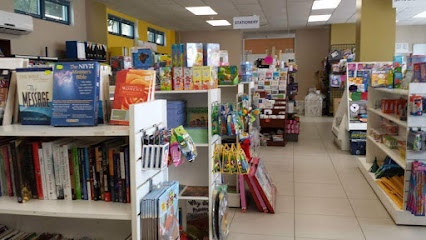
Leiola
Discover the flavors of Tonga at Leiola, the premier beer store in Nuku'alofa, offering local and international brews in a vibrant atmosphere.
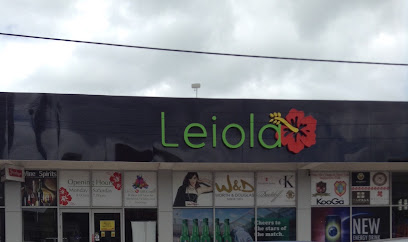
Fakafeta'i Store
Experience the authentic Tongan hospitality at Fakafeta'i Store in Nuku'alofa, where local culture meets quality goods.
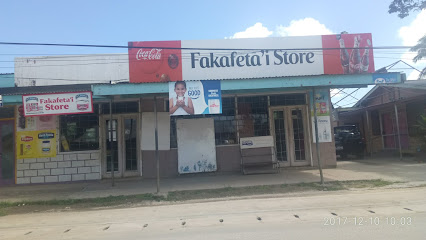
Value City (Tonga) Ltd.
Explore Nuku'alofa's Value City for unique second-hand treasures, vintage fashion, and authentic local artifacts that tell Tonga's story.
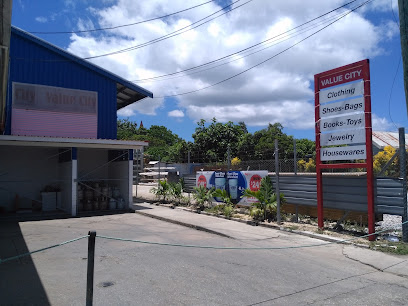
Fiefia Travel
Explore Fiefia Travel in Tofoa, Tonga: your one-stop hardware store and gateway to local crafts and tools for every traveler.

E & J System(Main)
Explore E & J System in Veitongo for all your tech needs, from repairs and rentals to security solutions, making your stay comfortable and connected.
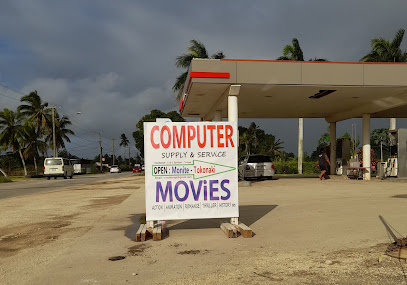
Fehoko Art Creations & The Arts of Tonga
Explore Tongan culture through unique art and crafts at Fehoko Art Creations in Nuku'alofa, a vibrant shopping destination for tourists.
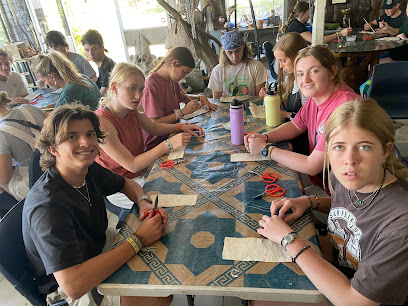
Le-Ata Tonga
Explore the vibrant Tongan culture through unique clothing and accessories at Le-Ata Tonga, the heart of Nuku'alofa's fashion scene.
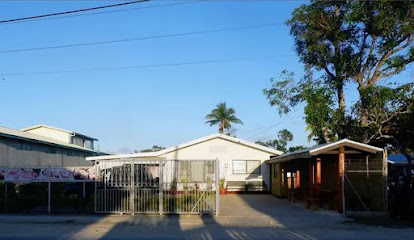
FORTUNE ISLAND SHOPPING CENTER
Discover local treasures and vibrant Tongan culture at Fortune Island Shopping Center in Nuku'alofa.
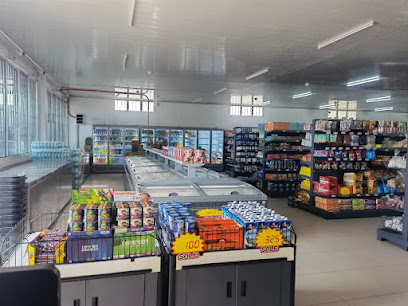
Essential bars & hidden hideouts
Little Italy Hotel
Discover the perfect blend of Italian flavors and Tongan hospitality at Little Italy Hotel in Nuku'alofa.

Friends Cafe
Discover the flavors and warmth of Tongan hospitality at Friends Cafe in Nuku'alofa, where every meal is a celebration of local culture.
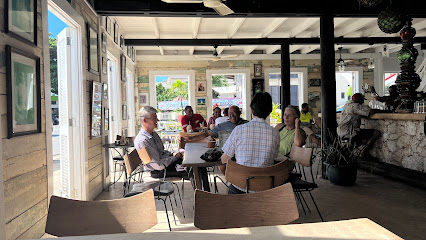
Cafe Escape
Experience the rich flavors of Tonga at Café Escape, where local cuisine meets cozy ambiance in the heart of Nuku'alofa.
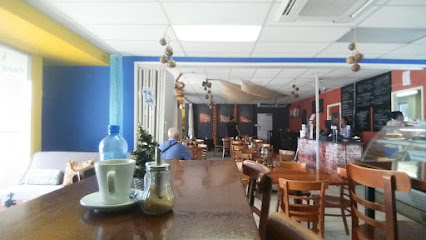
Billfish Bar and Restaurant
Discover the vibrant tastes of Tonga at Billfish Bar and Restaurant, where local flavors and refreshing drinks await in Nuku'alofa.
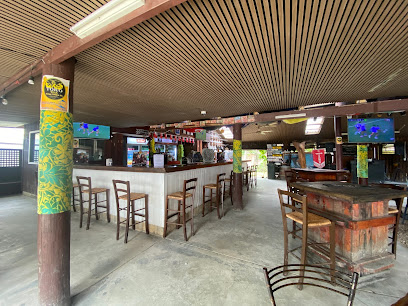
Chef Zero Restaurant
Experience the rich culinary traditions of Tonga at Chef Zero Restaurant, where local flavors meet modern dining in Nuku'alofa.
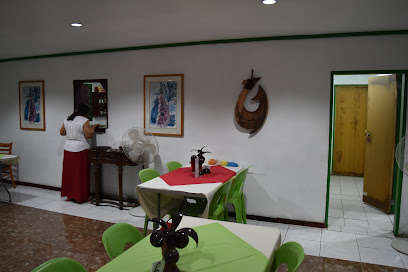
The TOP Restaurant and Lounge
Experience culinary delights at The TOP Restaurant and Lounge, where Tongan flavors meet modern dining in Nuku'alofa.
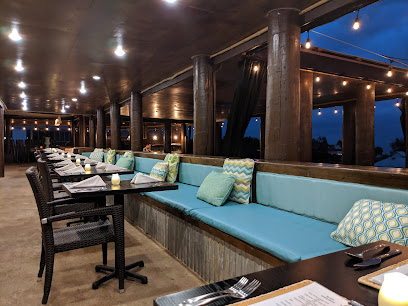
Ngutulei Bar & Restaurant
Discover the essence of Tongan cuisine at Ngutulei Bar & Restaurant in Nuku'alofa, where every meal is a celebration of flavor and culture.
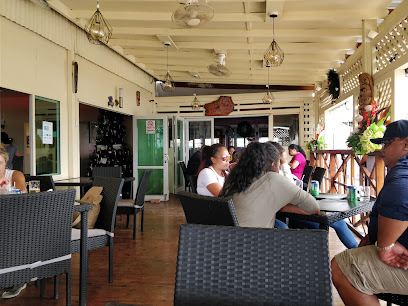
Young’s Kitchen
Discover the heart of Tongan cuisine at Young’s Kitchen in Nuku'alofa, where fresh ingredients meet local hospitality.
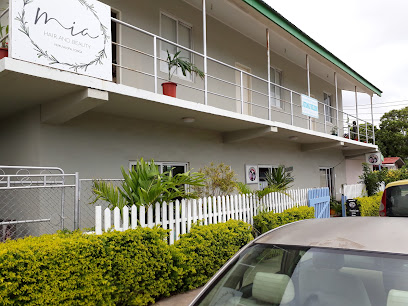
Frangipani - Korean Restaurant/Karaoke
Experience the vibrant flavors of Korea at Frangipani, a top restaurant and karaoke spot in Nuku'alofa, Tonga.
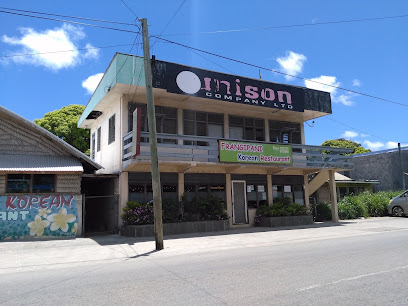
Nauti Ruby's Bar & Restaurant
Experience the essence of Tonga at Nauti Ruby's Bar & Restaurant, where local flavors meet breathtaking waterfront views.
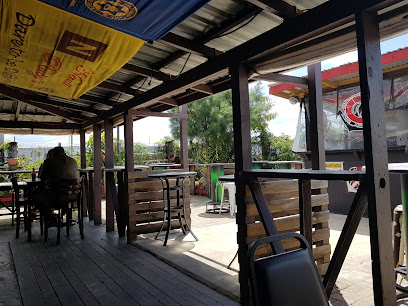
Reload Bar
Experience the vibrant nightlife of Nuku'alofa at Reload Bar, where great drinks and a lively atmosphere await every visitor.
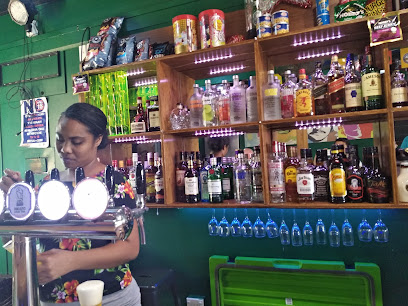
Tali'eva Inn Bar
Experience the vibrant Tongan culture at Tali'eva Inn Bar, a unique blend of local hospitality and lively atmosphere in Nuku'alofa.
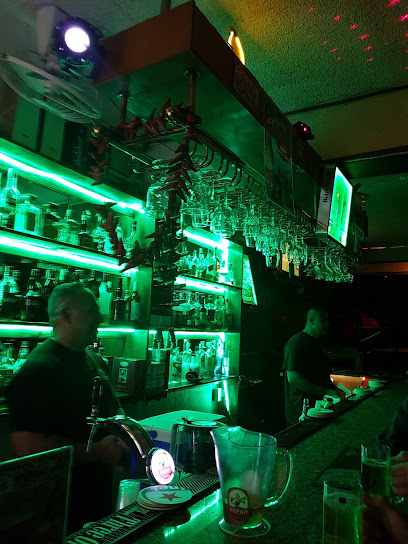
'Ofeina Restaurant
Experience the rich flavors of Tonga at 'Ofeina Restaurant, a family-friendly dining gem offering authentic dishes in a warm atmosphere.
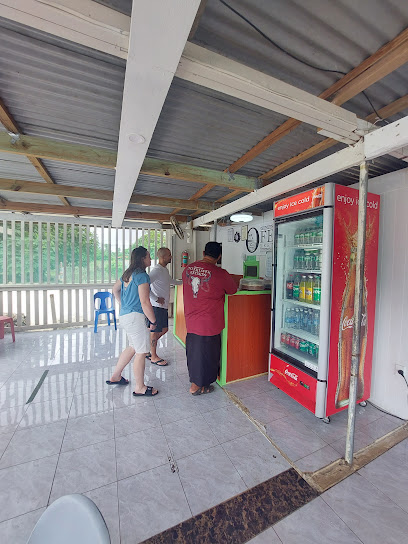
Fane Tonga
Discover the authentic tastes of Tonga at Fane Tonga, where local flavors meet warm hospitality in the heart of Pangai.

Local Phrases about Fonoifua Island
-
- HelloMalo e lelei
[mah-loh eh leh-leh] - GoodbyeNofo a
[noh-foh ah] - YesIo
[ee-oh] - NoʻIkai
[ee-kai] - Please/You're welcomeFakamolemole
[fah-kah-moh-leh-moh-leh] - Thank youMālō
[mah-loh] - Excuse me/SorryFakamālō
[fah-kah-mah-loh] - How are you?ʻOku ʻoatu haʻo
[oh-koo oh-ah-too hah-oh] - Fine. And you?Ua lelei. Pehe koe?
[oo-ah leh-leh. peh-heh koh-eh] - Do you speak English?ʻOku ʻoatu lea fakapālangi
[oh-koo oh-ah-too leh-ah fah-kah-pah-lahng-ee] - I don't understandʻIkai haʻo maluʻi
[ee-kai hah-oh mah-loo-ee]
- HelloMalo e lelei
-
- I'd like to see the menu, pleaseTeke ke ʻalu ki he meniu, fakamolemole
[teh-keh keh ah-loo kee heh meh-nee-oo fah-kah-moh-leh-moh-leh] - I don't eat meatʻIkai teke ʻalu i meʻa
[ee-kai teh-keh ah-loo ee meh-ah] - Cheers!Mālō
[mah-loh] - I would like to pay, pleaseTeke ke totongi, fakamolemole
[teh-keh keh toh-tohng-ee fah-kah-moh-leh-moh-leh]
- I'd like to see the menu, pleaseTeke ke ʻalu ki he meniu, fakamolemole
-
- Help!Tokoni!
[toh-koh-nee] - Go away!Alu ki tua!
[ah-loo kee too-ah] - Call the Police!Foni ki he Poate
[foh-nee kee heh poh-ah-teh] - Call a doctor!Foni ki he toka
[foh-nee kee heh toh-kah] - I'm lostTe uku
[teh oo-koo] - I'm illTe mate
[teh mah-teh]
- Help!Tokoni!
-
- I'd like to buy...Teke ke fakataha...
[teh-keh keh fah-kah-tah-hah] - I'm just lookingTeke ke ʻalu fakamālō
[teh-keh keh ah-loo fah-kah-mah-loh] - How much is it?Fakahaʻahaʻa ʻi he hingoa?
[fah-kah-hah-ah-hah ah ee heh hee-ngoh-ah] - That's too expensiveʻOku mahino ʻi he hingoa
[oh-koo mah-hee-noh ee heh hee-ngoh-ah] - Can you lower the price?ʻOku ke taʻe totongi?
[oh-koo keh tah-eh toh-tohng-ee]
- I'd like to buy...Teke ke fakataha...
-
- What time is it?Ko hai e hua?
[koh hai eh hoo-ah] - It's one o'clockKo e taha
[koh eh tah-hah] - Half past (10)Taha hiva
[tah-hah hee-vah] - MorningFōfō
[foh-foh] - AfternoonʻAhiahi
[ah-hee-ah-hee] - EveningFalamālie
[fah-lah-mah-lee-eh] - YesterdayʻAho neinei
[ah-hoh neh-ee-neh-ee] - TodayʻAho ni
[ah-hoh nee] - TomorrowʻAho apopo
[ah-hoh ah-poh-poh] - 1Taha
[tah-hah] - 2Hiva
[hee-vah] - 3Tolu
[toh-loo] - 4Fā
[fah] - 5Nima
[nee-mah] - 6Ono
[oh-noh] - 7Fitu
[fee-too] - 8Valu
[vah-loo] - 9Hiva
[hee-vah] - 10Hongofulu
[hoh-ngoh-foo-loo]
- What time is it?Ko hai e hua?
-
- Where's a/the...?Ko fe e...
[koh feh eh] - What's the address?Ko e tuʻa?
[koh eh too-ah] - Can you show me (on the map)?ʻOku ke fakahaʻi au?
[oh-koo keh fah-kah-hah-ee ow] - When's the next (bus)?Ko e hiki hoko hake?
[koh eh hee-kee hoh-koh hah-keh] - A ticket (to ....)Tikite (ki ...)
[tee-kee-teh kee]
- Where's a/the...?Ko fe e...
History of Fonoifua Island
-
Fonoifua Island, like much of Tonga, was first settled by Polynesians several thousand years ago. These early settlers brought with them rich traditions, intricate navigation skills, and a deep connection to the ocean. The island's culture was deeply influenced by these early inhabitants, who built large outrigger canoes and established complex social structures that can still be observed today.
-
The first European to arrive in Tonga was Dutch explorer Abel Tasman in 1643, but it wasn't until Captain James Cook's visits in the late 18th century that the Western world began to take a significant interest in the region. Cook's detailed journals and maps put Tonga, including Fonoifua Island, on the map for future explorers and traders. His interactions with the islanders were generally peaceful and led to a mutual exchange of knowledge and culture.
-
In the 19th century, Christian missionaries arrived in Tonga, bringing with them new religious and educational practices. The London Missionary Society was particularly influential on Fonoifua Island. The islanders gradually converted to Christianity, and the missionaries established schools and churches. This period marked a significant transformation in the island's culture, as traditional beliefs and customs were integrated with Christian teachings.
-
Fonoifua Island was affected by the series of civil wars that took place in Tonga during the early 19th century. These conflicts, known as the Tongan Civil Wars, were primarily driven by power struggles among local chiefs and the influence of European settlers. The island saw shifting alliances and battles, which eventually led to the unification of Tonga under King George Tupou I in 1845. This unification brought a period of relative peace and stability to the region.
-
Today, Fonoifua Island is a vibrant community that balances modern influences with traditional ways of life. The islanders are deeply committed to preserving their cultural heritage, from traditional dance and music to artisanal crafts and storytelling. Visitors to the island can experience this rich cultural tapestry firsthand, participating in local festivals, exploring ancient archaeological sites, and engaging with the warm and welcoming community.
Fonoifua Island Essentials
-
Fonoifua Island is located in the Ha'apai group of islands in Tonga. The closest international airport is Fua'amotu International Airport on Tongatapu Island. From there, you can take a domestic flight to Lifuka Island in Ha'apai. Once in Lifuka, you can arrange a boat transfer to Fonoifua Island. It is advisable to check the local boat schedules in advance as they may be infrequent.
-
Fonoifua Island is small and best explored on foot. There are no public transportation services on the island. For inter-island travel, boat services are available, but schedules can be irregular. Renting a boat or arranging a private transfer is a viable option for exploring nearby islands. Bicycles can sometimes be borrowed from locals for a small fee.
-
The official currency in Tonga is the Tongan Paʻanga (TOP). Fonoifua Island does not have ATMs or widespread credit card acceptance, so it is essential to carry enough cash. It's advisable to withdraw cash from ATMs on Tongatapu or Lifuka before heading to Fonoifua. Some local shops may accept USD, but this is not guaranteed.
-
Fonoifua Island is generally very safe for tourists. However, as in any destination, it is wise to take standard precautions. Always safeguard your belongings and avoid leaving valuables unattended. There are no areas with high crime rates targeting tourists specifically, but staying vigilant is always a good practice.
-
In case of emergency, contact the local authorities or any tour operators you might be with. There is no hospital on Fonoifua Island, so for medical emergencies, you would need to be evacuated to Lifuka or Tongatapu. It is crucial to have travel insurance that covers medical evacuation. Basic first aid supplies should be carried with you.
-
Fashion: Do dress modestly, especially when in villages or religious sites. Avoid wearing revealing clothing. Religion: Do respect local customs, and remove your shoes when entering homes or churches. Public Transport: As there is no public transport, make sure to arrange private transport in advance. Greetings: Do greet people with a friendly 'Malo e lelei' (Hello). Eating & Drinking: Do try local dishes and accept food offerings graciously. Don’t refuse hospitality, as it can be considered impolite.
-
To experience Fonoifua Island like a local, engage with the community by participating in traditional ceremonies or events if invited. Visit the local market to buy fresh produce and handmade crafts. Respect the environment by not littering and participating in beach clean-ups if possible. Try to learn a few words of Tongan, as locals appreciate the effort.
Nearby Cities to Fonoifua Island
-
Things To Do in Foa
-
Things To Do in Pangai
-
Things To Do in Nuku'alofa
-
Things To Do in Ha'ano
-
Things To Do in Ha'apai
-
Things To Do in Vava'u
-
Things To Do in Kolovai
-
Things To Do in Eua
-
Things To Do in Levuka
-
Things To Do in Nausori
-
Things To Do in Suva
-
Things To Do in Rakiraki
-
Things To Do in Savusavu
-
Things To Do in Sigatoka
-
Things To Do in Labasa








